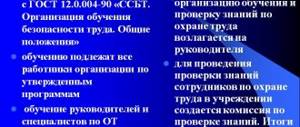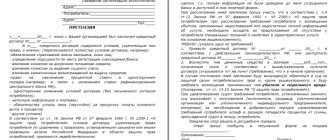(official current edition, full text of Article 230 of the Code of Civil Procedure of the Russian Federation)
1. The protocol is drawn up at a court session or when a separate procedural action is performed outside the court session by the secretary of the court session or on behalf of the presiding judge by an assistant judge. The protocol is drawn up in writing, it can be written by hand or compiled using technical means. Recording of the court session using audio recording means (audio recording) is carried out continuously during the court session. To ensure the completeness of the protocol, the court may also use shorthand and other technical means. The secretary of the court session or, on behalf of the presiding judge, the assistant judge ensures control over the use of shorthand, audio and (or) video recording, video conferencing systems and (or) other technical means during the court session or when performing a separate procedural action outside the court session.
The protocol indicates the use of technical means to record the progress of the court hearing. Media of information obtained using audio recordings, shorthand and (or) other technical means are attached to the protocol.
2. Persons participating in the case and their representatives have the right to petition for the disclosure of any part of the protocol, for the inclusion in the protocol of information about circumstances that they consider significant for the case.
3. The protocol of the court session must be drawn up and signed no later than three days after the end of the court session, the protocol of a separate procedural action - no later than the next day after the day it was committed.
4. The protocol is signed by the presiding judge and the secretary of the court session. If, on the instructions of the presiding judge, the protocol is drawn up by an assistant judge, it is signed by the presiding judge and the assistant judge. All changes, additions, and corrections made to the protocol must be agreed upon and certified by the signatures of the presiding judge and the secretary of the court session, or the signatures of the presiding judge and an assistant judge.
5. At the request of persons participating in the case, their representatives, and at the expense of the persons participating in the case, their representatives, a copy of the protocol and (or) a copy of the audio recording of the court session may be made.
Responsibility for drawing up the protocol
The presiding officer is responsible for the complete and objective reflection in the protocol of the entire course of the trial (see comments to Article 229 of the Code of Civil Procedure of the Russian Federation). In order to ensure the required quality of the protocol, he must ensure that persons trained to perform the duties of court secretary are allowed to keep the protocol; during the trial, monitor the completeness and accuracy of the reflection of the content of procedural actions and the results of the examination of evidence; timely check and correct the results in the recording protocol, do not allow the preparation of a careless, illiterate, technically poor-quality procedural document.
Persons participating in the case and their representatives, according to Article 230 of the Code of Civil Procedure of the Russian Federation, have the opportunity to respond to the quality of the preparation of the protocol, for which they have the right to request the disclosure of one or another part of the protocol, express their comments regarding their content, petition for the inclusion of information about the circumstances, which, in their opinion, are essential to the matter. These petitions and comments by the presiding officer are submitted for discussion to the persons participating in the case and their representatives and are resolved by the court in the form of a ruling. It should be noted that during a court hearing, audio recording is allowed, made not only by the secretary of the court session, but also by other participants in the process. In order to achieve completeness of the protocol and objectivity in its compilation, the court may use these records when discussing the submitted petitions.
Article 230 of the Code of Civil Procedure of the Russian Federation indicates a short time frame for preparing the protocol. It must be drawn up no later than three days after the end of the court hearing, and in the case of a separate procedural action, at least the next day. The above also applies to cases where the court postpones drawing up the reasoning part of the decision. The protocol is considered prepared after it is signed by the presiding judge and the secretary of the court session. Before signing the protocol, the presiding officer must carefully read its contents and invite the secretary to make the necessary corrections or additions to the text.
The absence of a signature in the protocol deprives it of its power and significance as a court document and leads to its invalidity, which entails the same consequences as the absence of a protocol (see commentary to Article 330 of the Code of Civil Procedure of the Russian Federation).
Protocol of the court session and problems associated with it
Content:
1 Protocol of a court hearing in civil proceedings.
2 The right of persons participating in the case to make comments on the minutes of the court session.
3 Problems associated with the preparation of comments on the minutes of the court session.
4 Judicial practice related to court records.
One of the types of procedural rights of persons participating in a civil case and their representatives is the right to make comments on the protocol and audio recording of the court session. The consolidation of this right in the current civil proceedings of the Russian Federation should be considered as a completely democratic step of a legislator interested in the flawless functioning of our judicial system and the solution of those tasks of civil proceedings that are outlined in Article 2 of the Civil Procedure Code of the Russian Federation (hereinafter referred to as the Code of Civil Procedure of the Russian Federation).
In practice, when civil cases are considered by magistrates, city and district courts, there are various incidents with the protocols of court hearings, as well as with the rights of persons participating in the case, to influence the preparation of the protocol of the court session, to get acquainted with the protocol and audio recording of the court session, to submit in writing comments on the protocol and audio recording of the court session, indicating any inaccuracies and (or) their incompleteness. Some of these procedural issues will be discussed in this article.
1 Protocol of a court hearing in civil proceedings.
Chapter 21 of the Code of Civil Procedure of the Russian Federation is devoted to the protocol of a court hearing in civil proceedings.
Article 228 of the Code of Civil Procedure of the Russian Federation determines that during each court session of the courts of first and appellate instances (including the preliminary court hearing), as well as when a separate procedural action is performed outside the court session, recording is carried out using audio recording means (audio recording) and a protocol is drawn up in writing.
The content of the protocol of the court session is determined by Article 229 of the Code of Civil Procedure of the Russian Federation, according to which the protocol of the court session must indicate:
1) date and place of the court hearing;
2) the start and end time of the court session; 3) the name of the court hearing the case, the composition of the court, the assistant judge and the secretary of the court session; (as amended by Federal Law No. 265-FZ of July 29, 2018) 4) name of the case; 5) information about the appearance of persons participating in the case, their representatives, witnesses, experts, specialists, translators; 6) information about explanations to persons participating in the case, their representatives, witnesses, experts, specialists, translators of their procedural rights and obligations; 7) orders of the presiding judge and rulings made by the court in the courtroom; statements, petitions and explanations of persons participating in the case, their representatives; 9) testimony of witnesses, explanations by experts of their conclusions, consultations and explanations of specialists; 10) information about the disclosure of written evidence, data from the inspection of material evidence, listening to audio recordings, viewing video recordings; 11) the contents of the conclusions of the prosecutor and representatives of state bodies and local government bodies; 12) content of judicial debates; 13) information about the announcement and explanation of the content of the court decision and court rulings, an explanation of the procedure and deadline for appealing them; 14) information about explaining to the persons participating in the case and their representatives the rights to familiarize themselves with the protocol and audio recording of the court session and submit comments on them; (clause 14 as amended by Federal Law dated July 29, 2018 N 265-FZ) 14.1) information on the use of audio, video recording, video conferencing systems and (or) other technical means, as well as on filming and photography, video recordings, broadcasts of the court hearing on radio, television and on the Internet information and telecommunications network during the court hearing. When broadcasting a court hearing, the name of the media outlet or website on the Internet through which the broadcast was carried out is also indicated; (clause 14.1 as amended by Federal Law No. 223-FZ of July 29, 2017) 15) date of drawing up the protocol. 3. The minutes of the court hearing in the case considered by the magistrate shall additionally indicate information about the explanation to the persons participating in the case and their representatives of the right to submit an application for drawing up a reasoned court decision.
The preparation of the protocol of a court session is enshrined in Article 230 of the Code of Civil Procedure of the Russian Federation, according to which persons participating in the case and their representatives have the right to petition for the disclosure of any part of the protocol, for the inclusion in the protocol of information about circumstances that they consider significant for the case
. In practice, some judges have a negative attitude towards this right of persons participating in the case and their representatives.
The minutes of the court session must be drawn up and signed no later than three days after the end of the court session, the minutes of a separate procedural action - no later than the next day after the day of its commission.
Plenum of the Supreme Court of the Russian Federation in paragraph 17 of Resolution No. 13 of June 28, 2008 “On the application of the norms of the Civil Procedure Code of the Russian Federation when considering and resolving cases in the court of first instance”
emphasized the importance of the court record as one of the main procedural documents in civil proceedings.
17. Since the protocol of the court session is one of the main procedural documents, it must be presented in full, clearly from the point of view of its reading, in the sequence in which the trial is conducted, and, in particular, must reflect: information about the persons who appeared at court hearing (Articles 161.169 of the Code of Civil Procedure of the Russian Federation); information on explaining to experts, translators and specialists their rights and obligations (Articles 85, 162, 171, 188 of the Code of Civil Procedure of the Russian Federation); sequence of examination of evidence (Article 175 of the Code of Civil Procedure of the Russian Federation); a statement of questions asked by the court and persons participating in the case and the answers received; data on the disclosure of testimonies of absent persons, the examination of written evidence that was presented for review; information on the reproduction of audio or video recordings and its examination, announcement and explanation of the content of the decision and rulings of the court, explanation of the procedure and deadline for appealing them; information about when the persons participating in the case and their representatives can familiarize themselves with the reasoned decision, about explaining to the persons participating in the case their rights to familiarize themselves with the protocol and submit comments on it, and about performing other actions.
2 The right of persons participating in the case to make comments on the minutes of the court session.
When courts of first instance consider civil cases, there are often situations when a person participating in a case or his representative at a court hearing makes some oral statements or petitions that may affect the outcome of the court's consideration of a particular case. In such cases, you should promptly exercise the right to familiarize yourself with the minutes of the court session, and, if necessary, submit written comments on the minutes of the court session and the audio recording, indicating that they contain inaccuracies and (or) their incompleteness in accordance with Article 231 of the Code of Civil Procedure of the Russian Federation.
Article 231. Comments on the protocol (as amended by Federal Law No. 265-FZ of July 29, 2018) Persons participating in the case and their representatives have the right to familiarize themselves with the protocol and audio recording of the court hearing or a separate procedural action within five days from the date of signing the protocol submit written comments on such protocols and audio recordings, indicating any inaccuracies and/or incompleteness in them.
It would seem that everything is clear and understandable to the judge who is considering a specific case, to the persons participating in the case, that according to Article 230 of the Code of Civil Procedure of the Russian Federation, the protocol of the court session must be drawn up and signed by the judge and the secretary of the court session no later than three days after the end of the court session, protocol of a separate procedural action - no later than the next day after the day it was committed, and persons participating in the case and their representatives have the right, in accordance with Article 231 of the Code of Civil Procedure of the Russian Federation, to familiarize themselves with the protocol and audio recording of a court session or a separate procedural action and within five days from the date of signing protocol, submit written comments on such protocol and audio recording, indicating any inaccuracies and (or) incompleteness therein.
That is, persons participating in a particular case have 5 (FIVE) days from the date of signing the protocol of the court session by the judge and the secretary:
a) familiarize yourself with the minutes of the court session;
b) submit written comments on the protocol and audio recording, indicating any inaccuracies and (or) their incompleteness;
c) the judge who signed the protocol of the court session is obliged, in accordance with Article 232 of the Code of Civil Procedure of the Russian Federation, to consider comments on the protocol and audio recording of the court session or a separate procedural action within five days from the date of their filing and, if he agrees with the comments, certifies their correctness, and if he disagrees with them makes a reasoned decision regarding their complete or partial rejection. The comments are included in the case in any case.
Unfortunately, in practice, not everything is so simple with this procedural issue and with the right of persons participating in the case to timely familiarize themselves with the protocol of the court session and promptly submit written comments on the protocol of the court session to the judge who signed this protocol. This will be discussed below.
3 Problems associated with the preparation of comments on the minutes of the court session.
In judicial practice, there are often cases when persons participating in a case and their representatives cannot timely familiarize themselves with the protocol of a court session, since they do not know exactly when exactly the judge and the secretary of the court session signed this protocol, which allows some judges and their secretaries to sign the minutes of court hearings retroactively. As a result of this, persons participating in the case and their representatives may miss the deadline specified in Article 231 of the Code of Civil Procedure of the Russian Federation for submitting to the judge a written comment on such a protocol and audio recording, indicating any inaccuracies in them and (or) their incompleteness.
If the persons involved in the case have representatives (lawyers, attorneys), then most of them know what to do in such situations.
But persons participating in the case who do not have such representatives often have various problems with this important procedural issue.
What is the best thing to do for a person participating in a case if he needs to familiarize himself with the protocol and audio recording of a court hearing?
Firstly
, if this is the last protocol of the court session, which was kept by the secretary of the court session on the day the judge made a decision on the claim, then in this case it is better to ask the judge during the court session when
you can familiarize yourself with the minutes of the court session and the case materials
.
According to Article 199 of the Code of Civil Procedure of the Russian Federation, the court decision is made immediately after the hearing of the case. The court must announce the operative part of the decision at the same court session in which the trial of the case ended.
Drawing up a reasoned court decision may be postponed for a period of no more than five days from the date of completion of the trial of the case.
Therefore, it is better, immediately the next day after the court announces the operative part of the court decision, to fill out an application to the court on the basis of Article 35 of the Code of Civil Procedure of the Russian Federation to provide the case materials for review and to make photocopies of them. Such an application must be drawn up in 2 identical copies and, after signing them, the first copy of the application must be submitted to the court office against signature on the second copy of the application. Sample application for familiarization with the case:
To the court From the Defendant Full name, address, phone number For case No. Judge Full name APPLICATION for provision of case materials for review The court is in the process of civil case No. on the statement of claim Full name. to the defendant full name Based on Article 35 of the Civil Procedure Code of the Russian Federation, I ask the court to provide me with the materials of civil case No. for review and for making photocopies. Please inform me about the date when I can familiarize myself with the materials of this civil case by phone. and/or to my email. address: .Date signature Full name
Then, the next day or every other day, in the same way, you can fill out an application to the court in 2 copies to provide for review the protocol and audio recording of a court hearing or a separate procedural action and transfer the first copy of the application to the court office for signature on the second copy of the application.
After such written actions of a person participating in the case, it is unlikely that the judge will decide not to provide him with the materials of the civil case, the protocol and audio recording of the court hearing or a separate procedural action for review.
Secondly
, if this is not the last protocol of the court session, then you can apply to the court only with an application to provide for review the protocol and audio recording of the court session or a separate procedural action.
Third
, if a judge of a city or district court or a magistrate does not provide the person participating in the case, upon his written application, within the time limits specified in Articles 199, 230 of the Code of Civil Procedure of the Russian Federation, for familiarization with the case materials and (or) a protocol with an audio recording of a court session or a separate procedural actions, then he can immediately do the following:
a) write a complaint against a judge or magistrate addressed to the chairman of the court;
b) write a complaint to the Qualification Board of Judges of a constituent entity of the Russian Federation.
On the website of the High Qualification Board of Judges of the Russian Federation, you can familiarize yourself with the Qualification Boards of Judges of the constituent entities of the Russian Federation here https://vkks.ru/letters/
Fourth
,
what should a person participating in the case do if for some reason (objective, subjective) he has become familiar with the minutes of the court session, but to submit written comments on the minutes of the court session to the judge, he missed the deadline specified in Article 231 of the Code of Civil Procedure of the Russian Federation?
In this situation, you can submit written comments to the judge on the minutes of the court session with a petition on the basis of Article 112 of the Code of Civil Procedure of the Russian Federation to restore the missed deadline for filing written comments on the minutes of the court session with the attachment of written evidence confirming the validity of the reasons for the absence of the person participating in the trial. case, the deadline in accordance with Article 231 of the Code of Civil Procedure of the Russian Federation for submitting written comments to the judge on the minutes of the court session.
For what procedural issues should a person participating in a civil case become familiar with the protocol and audio recording of the court hearing?
1 If the plaintiff or defendant at the court hearing declared to the court about postponing the consideration of the case, about suspending the consideration of the case, about requesting evidence, etc., and the judge did not react in any way to these statements.
2 If the defendant at the court hearing declared to the court that the plaintiff had missed the statute of limitations when filing a statement of claim and that the court refused to satisfy the plaintiff’s claims in accordance with Articles 196, 200, 199 of the Civil Code of the Russian Federation.
3 If a witness for a party to a civil case gave contradictory testimony to the court during a court hearing or his answers to questions from persons participating in the case were also contradictory.
4 If the persons participating in the case, their representatives during the court session petitioned for the disclosure of any part of the protocol, for the inclusion in the protocol of information about the circumstances that they consider significant for the case.
5 On other important procedural issues that may or may not be indicated in the minutes of the court hearing, on which the outcome of the court's consideration of the claim in a civil case may depend.
4 Judicial practice related to court records.
1) Is it possible to appeal the ruling of the court of first instance to reject the comments of a person participating in the case on the minutes of the court session to the appellate court?
According to Part 1 of Article 331 of the Code of Civil Procedure of the Russian Federation, the rulings of the court of first instance can be appealed to the appellate court separately from the court decision by the parties and other persons participating in the case (private complaint), and the prosecutor can make a presentation if:
1) this is provided for by this Code;
2) the court’s ruling excludes the possibility of further progress of the case.
According to Part 3 of Article 331 of the Code of Civil Procedure of the Russian Federation, private complaints and presentations of the prosecutor are not filed against the remaining rulings of the court of first instance, but objections regarding them can be included in the appeal or presentation.
Thus, if the ruling of the court of first instance on disagreement with the comments of a person participating in a civil case on the record of the court session excludes the possibility of further progress of the case, then such ruling of the court of first instance can be appealed to the appellate court within the period specified in Article 332 of the Code of Civil Procedure of the Russian Federation.
An example from judicial practice
.
By the decision of the Nevyansky City Court of the Sverdlovsk Region dated October 3, 2013, S.’s claims against the administration of the Verkh-Neyvinsky urban district, MKDOU combined-type kindergarten “Solnyshko” for reinstatement at work, recovery of wages for the period of forced absence, and compensation for moral damage were denied.
By the ruling of the Nevyansky City Court of the Sverdlovsk Region dated October 21, 2013, the comments filed by the plaintiff on the minutes of the court hearing dated October 2-03, 2013 in the specified civil case were rejected.
Disagreeing with the said determination, the plaintiff filed a private complaint, believing that satisfying the comments on the minutes of the court session is essential for the correct resolution of the dispute, since the court bases its conclusions on the explanations of the parties, incorrectly reflected in the minutes of the court session dated 02.03.2013, that follows from the audio recording of the court hearing.
The judge in the ruling dated October 21, 2013 indicated that it can be appealed to the appellate court within 15 days from the date of the ruling by the court of first instance.
The Judicial Collegium for Civil Cases of the Sverdlovsk Regional Court left the plaintiff’s private complaint against the ruling of the Nevyansky City Court of the Sverdlovsk Region dated October 21, 2013 regarding disagreement with the plaintiff’s comments on the court record and its Appeal ruling No. 13-364/2014 dated January 15, 2014. without consideration for the following reasons.
As follows from the case materials, S. is appealing the court’s ruling to reject comments on the minutes of the court session.
The current Civil Procedure Code of the Russian Federation does not provide for filing a private complaint against such a court ruling.
According to paragraph 40 of the Resolution of the Plenum of the Supreme Court of the Russian Federation dated June 19, 2012 N 13 “On the application by courts of the norms of civil procedural legislation regulating proceedings in the appellate court,” if during the consideration of the case in the appellate court it is established that the appeal or presentation has been filed against a court decision that is not subject to appeal through the appellate procedure, then the appellate court, on the basis of Part 4 of Article 1 and Paragraph 4 of Article 328 of the Civil Procedure Code of the Russian Federation, issues a ruling to leave the appeal or presentation without consideration on the merits.
The erroneous indication by the court of first instance of the possibility of appealing the ruling dated October 21, 2013 to reject comments on the minutes of the court session does not change the procedure for appealing judicial acts established by the Civil Procedure Code of the Russian Federation.
The appeal ruling of the Irkutsk Regional Court dated November 14, 2013 in case No. 33-9308/2013 similarly left without consideration the plaintiff’s private complaint against the ruling of the judge of the Kirovsky District Court of Irkutsk dated September 30, 2013 on the rejection of the comments filed by the plaintiff on the court record meeting dated September 12, 2013
2) Interesting on this topic is the Appeal ruling of the Supreme Court of the Republic of Karelia dated March 19, 2021 in case No. 33-964/2019, which is the decision of the Medvezhyegorsky District Court of the Republic of Karelia dated January 15, 2019 on the collection of a collection claim from a credit card debtor the debt with interest and penalties was canceled, and the new decision completely rejected the claim of Phoenix LLC.
Phoenix LLC first turned to the magistrate to issue a court order, which was later canceled based on the credit card debtor’s objection. In his objections to the court order, the debtor indicated that the plaintiff missed the deadline for collecting this debt in court.
Next, the collectors filed a lawsuit with the Medvezhyegorsky District Court, which, by its decision dated January 15, 2019, despite the fact that the defendant verbally objected to the claims due to the plaintiff missing the statute of limitations
, fully satisfied the claims of Phoenix LLC.
The Supreme Court of the Republic of Karelia, in its Appeal ruling dated March 19, 2019, stated the following.
In the application dated July 27, 2018, to cancel the court order (...). indicated that the claimant missed the three-year deadline for filing these claims (case file 28).
Considering that the law does not contain requirements for the execution of an application for the application of the consequences of missing the limitation period, such a petition can be submitted by a party orally or in writing, the court should have assessed this application of the defendant and examined the circumstances related to the deadline for the plaintiff to apply to the court with this lawsuit
Thus, the defendant in this case did not even bother to get acquainted with the protocol of the court session to check whether the court entered into the protocol of the court session his oral statement about the plaintiff missing the statute of limitations when filing a claim in court
, but justice, on the basis of Article 199 of the Civil Code of the Russian Federation, triumphed when the Supreme Court of the Republic of Karelia considered the defendant’s appeal against the decision of the trial court.
About the judicial practice of consideration by different courts of claims of a collection agency for the collection of debts, interest and penalties from credit card debtors, see here More details ➤
What conclusions can be drawn from this short article and from judicial practice on the issue of the right of persons participating in a civil case to familiarize themselves with the protocol and audio recording of court hearings and to submit comments on the protocol and audio recording of court hearings?
1 You must fully use all your procedural rights, as defined in Articles 35, 230, 231, 320, Part 3 of Article 331 of the Code of Civil Procedure of the Russian Federation.
2 In court hearings, practice the use, on the basis of Part 7 of Article 10 of the Civil Procedure Code of the Russian Federation, of the right to record the progress of the trial using audio recording means.
The Plenum of the Supreme Court of the Russian Federation in paragraph 12 of Resolution No. 13 of June 26, 2021 “On the application of the norms of the Civil Procedure Code of the Russian Federation when considering and resolving cases in the court of first instance” indicated:
12. By virtue of Part 7 of Article 10 of the Code of Civil Procedure of the Russian Federation, persons participating in the case and citizens present at an open court hearing have the right to record the progress of the trial in writing, as well as using audio recording means, without the permission of the court (judge). Photography, video recording, and broadcast of the court hearing on radio and television are permitted with the permission of the court, taking into account the opinions of the persons participating in the case. These actions must be carried out at places designated by the court in the courtroom and, by determination of the court, may be limited in time.
Lawyer Zotov V.I.
Petrozavodsk,
September 18, 2021
 2) the start and end time of the court session; 3) the name of the court hearing the case, the composition of the court, the assistant judge and the secretary of the court session; (as amended by Federal Law No. 265-FZ of July 29, 2018) 4) name of the case; 5) information about the appearance of persons participating in the case, their representatives, witnesses, experts, specialists, translators; 6) information about explanations to persons participating in the case, their representatives, witnesses, experts, specialists, translators of their procedural rights and obligations; 7) orders of the presiding judge and rulings made by the court in the courtroom; statements, petitions and explanations of persons participating in the case, their representatives; 9) testimony of witnesses, explanations by experts of their conclusions, consultations and explanations of specialists; 10) information about the disclosure of written evidence, data from the inspection of material evidence, listening to audio recordings, viewing video recordings; 11) the contents of the conclusions of the prosecutor and representatives of state bodies and local government bodies; 12) content of judicial debates; 13) information about the announcement and explanation of the content of the court decision and court rulings, an explanation of the procedure and deadline for appealing them; 14) information about explaining to the persons participating in the case and their representatives the rights to familiarize themselves with the protocol and audio recording of the court session and submit comments on them; (clause 14 as amended by Federal Law dated July 29, 2018 N 265-FZ) 14.1) information on the use of audio, video recording, video conferencing systems and (or) other technical means, as well as on filming and photography, video recordings, broadcasts of the court hearing on radio, television and on the Internet information and telecommunications network during the court hearing. When broadcasting a court hearing, the name of the media outlet or website on the Internet through which the broadcast was carried out is also indicated; (clause 14.1 as amended by Federal Law No. 223-FZ of July 29, 2017) 15) date of drawing up the protocol. 3. The minutes of the court hearing in the case considered by the magistrate shall additionally indicate information about the explanation to the persons participating in the case and their representatives of the right to submit an application for drawing up a reasoned court decision.
2) the start and end time of the court session; 3) the name of the court hearing the case, the composition of the court, the assistant judge and the secretary of the court session; (as amended by Federal Law No. 265-FZ of July 29, 2018) 4) name of the case; 5) information about the appearance of persons participating in the case, their representatives, witnesses, experts, specialists, translators; 6) information about explanations to persons participating in the case, their representatives, witnesses, experts, specialists, translators of their procedural rights and obligations; 7) orders of the presiding judge and rulings made by the court in the courtroom; statements, petitions and explanations of persons participating in the case, their representatives; 9) testimony of witnesses, explanations by experts of their conclusions, consultations and explanations of specialists; 10) information about the disclosure of written evidence, data from the inspection of material evidence, listening to audio recordings, viewing video recordings; 11) the contents of the conclusions of the prosecutor and representatives of state bodies and local government bodies; 12) content of judicial debates; 13) information about the announcement and explanation of the content of the court decision and court rulings, an explanation of the procedure and deadline for appealing them; 14) information about explaining to the persons participating in the case and their representatives the rights to familiarize themselves with the protocol and audio recording of the court session and submit comments on them; (clause 14 as amended by Federal Law dated July 29, 2018 N 265-FZ) 14.1) information on the use of audio, video recording, video conferencing systems and (or) other technical means, as well as on filming and photography, video recordings, broadcasts of the court hearing on radio, television and on the Internet information and telecommunications network during the court hearing. When broadcasting a court hearing, the name of the media outlet or website on the Internet through which the broadcast was carried out is also indicated; (clause 14.1 as amended by Federal Law No. 223-FZ of July 29, 2017) 15) date of drawing up the protocol. 3. The minutes of the court hearing in the case considered by the magistrate shall additionally indicate information about the explanation to the persons participating in the case and their representatives of the right to submit an application for drawing up a reasoned court decision. 







